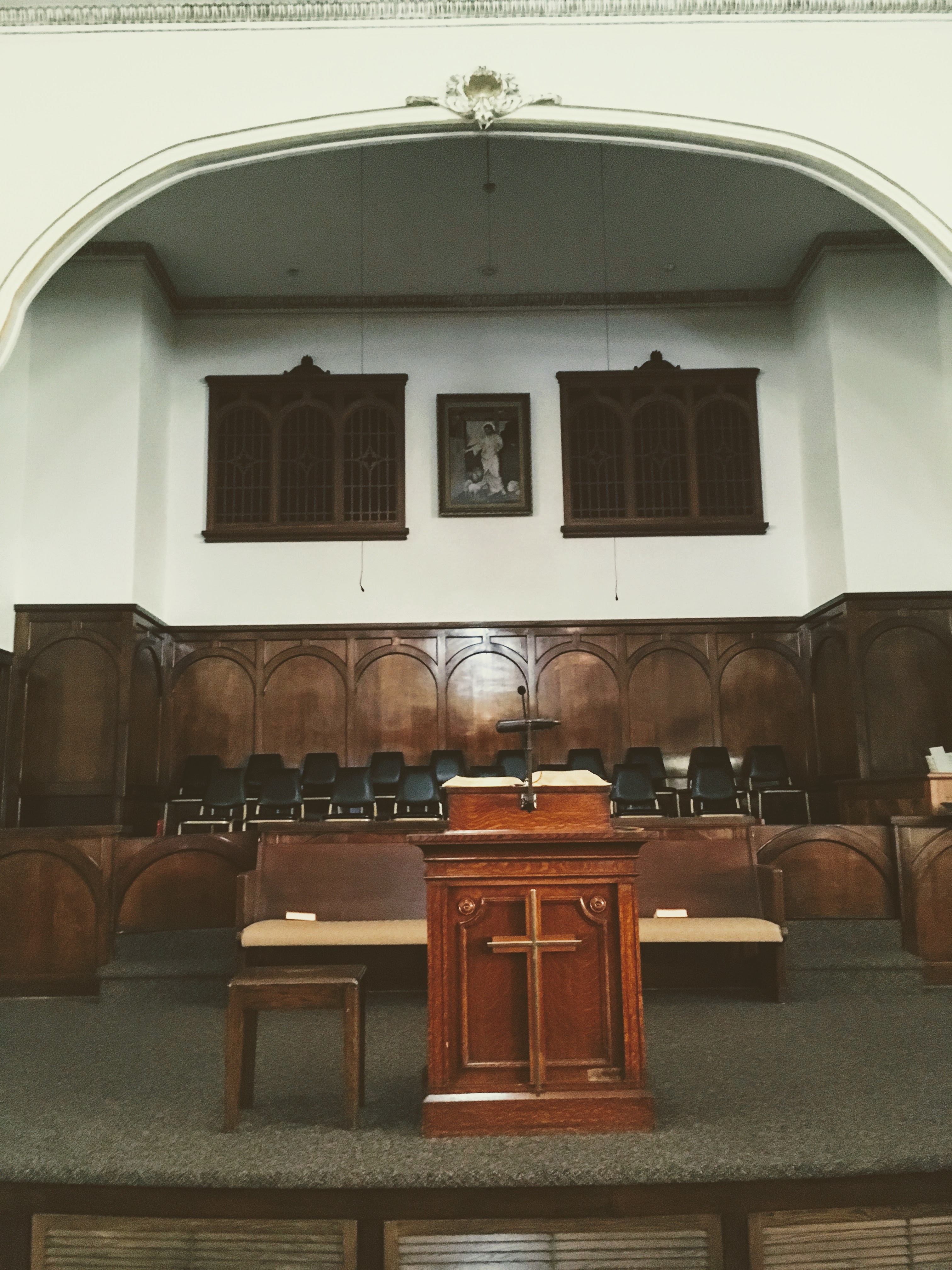June 7, 2020
- Musical Prelude – Molly Loesch
- Scripture – Luke 14:16-24
- Message – Stewardship of Time: 525,600 Minutes (Catherine Griffith)
- Flowers – Art & Helen Binford
Announcements
- We are live streaming on Facebook and not gathering at the church for worship, at least through the month of June.
- During the live streaming, we do have room for a few people to come and serve as a kind of facing bench. If you would like to be among a handful of people who worship with us in person, be sure and let the office know. Call or email the church office, and we’ll put your name in the hat.
- Also, please feel free to share our worship with your Facebook friends by posting a link on your page.
- Among church activities this week
- The 205 Sunday School class is gathering for fellowship on Zoom this afternoon.
- The book club will meet at 6:30 p.m. on Tuesday, June 9, to discuss the first two chapters of Phil Gulley’s book, For Everything a Season: “A Time to Be Born” and “A Time to Die.”
- The Christian Education Committee plans to meet on Saturday, June 13, at 3:30 p.m.
If you have suggestions for that committee about reopening during the pandemic, please contact someone on the committee.
- Monthly Meeting for worship with a concern for business will be held via Zoom at 1:00 p.m. on Sunday, June 21. Please remember to give some attention to the proposed restructuring of committees and contact Doug Chambers with questions and comments.
Prayer concerns
- Dan Schuster’s blood pressure is going in the right direction (down), and he’s scheduled for a stress test on Thursday, June 11.
- Greg Newby’s Port-a-Cath was successfully implanted this past week, and he will begin chemotherapy this coming Thursday and continue every three weeks through September.
- Here’s what I posted on the University Friends private Facebook page yesterday:
As you know, Gordon was admitted to the hospital late last week because he had had at least one small stroke. Since his admission, he has had brain surgery to drain blood on his brain, which had resulted from a fall he took several weeks ago.
The surgery went well, and the draining has finished. Thursday (June 4), the hospital moved Gordon from ICU to a regular floor. Since then, he has had a couple of bad days, and, while the plan had been to get him into a rehab facility, the verdict now is that he is not strong enough for rehab. The current plan is to move him to a skilled nursing facility, near to where the Smiths live, maybe as early as this weekend.
Joan is still the only person allowed to visit Gordon, and this is very difficult — for Joan, for Gordon, and for their son Gil.
Prayer
God of love and justice, we turn to you.
- We pray for those we care about who are going through health difficulties.
- We pray for people dealing with loss (people, pandemic losses, change)
We pray for our country and our leaders.
God, we acknowledge that we live in a racist country and that we ourselves are wholly free of racism.
May we find ways to bring healing, to ourselves first and then to our community.
May we be open to ways that we can increase peace and justice in our world. May we live our lives in ways that show that we know black lives matter, to us and to you. Amen.
Message
Today’s message is the second of a series on stewardship.
The Quaker testimony of stewardship calls us to use God’s gifts wisely and well.
As the American Friends Service Committee puts it (https://www.afsc.org/testimonies/stewardship):
To Friends, good stewardship means taking care of what has been given, not just for ourselves, but for the people around us and for future generations as well.
Last week I talked about the earth as one of God’s gifts to us.
This morning – time.
The average human lifespan in the United States these days is 79 years. Of course, none of us knows what our own lifespan will be. Seventy-nine years is an average, not a guarantee.
I took a sociology class in college about human development, and that class, among other things, suggested that we could get a realistic estimate of how long each of us might live. The idea is to look at the age that your grandparents were when they died. That gives you four numbers. Drop the lowest one; average the other three; and add five.
My mother’s mother died in her mid-70s, just days after my son was born. She was the youngest, so I don’t count her in this calculation.
The other three of my grandparents lived well into their 90s. In fact, my mom’s dad eloped when he was 89, with an older woman named Muriel, who was, I believe, 92.
So, if I average the ages of those three grandparents and add five, I get pretty darn close to 100. I might not live that long, I know, but longevity is in my family, so…. 🤷♀️
A wise woman faces reality.
However long our lives may last, we have the life we have, and thinking of the stewardship of time, we are called to live that life wisely and well.
The stewardship of time is closely related to the testimony of simplicity. Where the testimony of simplicity calls us to recognize that things can get in our way of following Jesus, when we look at the stewardship of time, it calls us to recognize that how we spend our time can get in the way of following Jesus.
I imagine that using time wisely and well might ask some people to get up off the couch and do something meaningful. Yes? I know that the same call, to use time wisely and well, might ask some people to slow down, to do less. Where are you on that continuum? It might depend on the day. It might even vary within one day. Yes?
Thinking of those of us who need to pare down our busyness, I turn to Thomas Kelly’s A Testament of Devotion, a Quaker classic written in the 1940s, still in print.
Here’s how Kelly begins the chapter called “The Simplification of Life” (pp. 112-113, some commas added):
The problem we face today needs very little time for its statement. Our lives in a modern city grow too complex and overcrowded. Even the necessary obligations which we feel we must meet, grow overnight, like Jack’s beanstalk, and before we know it we are bowed down with burdens, crushed under committees, strained, breathless, and hurried, panting through a never-ending program of appointments. We are too busy to be good wives to our husbands [or good husbands to our wives], good homemakers, good companions of our children, good friends to our friends, and with no time at all to be friends to the friendless.
But if we withdraw from public engagements and interest, in order to spend quiet hours with the family, the guilty calls of citizenship whisper disquieting claims in our ears. Our children’s schools should receive our interest, the civic problems of our community need our attention, the wider issues of the nation and of the world are heavy upon us. Our professional status, our social obligations, our membership in this or that very important organization, put claims upon us. And in frantic fidelity we try to meet at least the necessary minimum of calls upon us. But we’re weary and breathless. And we know and regret that our life is slipping away, with our having tasted so little of the peace and joy and serenity we are persuaded it should yield to a soul of wide caliber. The times for the deeps of the silences of the heart seem so few. And in guilty regret we must postpone till next week that deeper life of unshaken composure in the holy Presence, where we sincerely know our true home is, for this week is much too full.
In the previous chapter, Kelly had addressed this same problem (p. 110).
Too many of us have too many irons in the fire. We get distracted by the intellectual claim to our interest in a thousand and one good things, and before we know it, we are pulled and hauled breathlessly along by an over-burdened program of good committees and good undertakings. I am persuaded that this fevered life … is not wholesome. Undertakings get plastered on from the outside because we can’t turn down a friend. Acceptance of service on a weighty committee should really depend upon an answering imperative within us, not merely upon a rational calculation of the factors involved.
I will note that this concern is one of the reasons we’re looking at restructuring committees – to emphasize empowering people to serve according to what they are called and gifted to, not what they are guilted into.
When keeping the church going distracts from following Jesus, that’s a problem.
Kelly continues:
The concern-oriented life is ordered and organized from within. And we learn to say No as well as Yes by attending to the guidance of inner responsibility. Quaker simplicity needs to be expressed not merely in dress and architecture and the height of tombstones but also in the structure of a relatively simplified and co-ordinated life-program of social responsibilities. And I am persuaded that concerns introduce that simplification, and along with it that intensification which we need in opposition to the hurried, superficial tendencies of our age.
… The social concern of Friends is grounded in an experience – an experience of the Love of God…. Social concern is the dynamic Life of God at work in the world, made special and emphatic and unique, particularized in each individual or group who is sensitive and tender in the leading-strings of love. A concern is God-initiated, often surprising, always holy, for the Life of God is breaking through into the world. Its execution is in peace and power and astounding faith and joy, for in unhurried serenity the Eternal is at work in the midst of time… (p. 111).
Using time wisely and well means we take time to live a centered life in which God breaks through.
- Where is God breaking through in your life? [Pause.]
- Where is God breaking through for us as a congregation? [Pause.]
When we give attention to the work of the Spirit, that’s where we will find peace and power, faith and joy. This I know experientially.
How do we know where God is breaking through? When we are living in peace and power and faith and joy.
What guides our setting of priorities for how we spend our time?
The Bible gives us some direction.
We have what Jesus identified as the greatest commandments, Mark 12, beginning with verse 29, in The Message:
29-31 Jesus said, “The first in importance is, ‘Listen, Israel: The Lord your God is one; so love the Lord God with all your passion and prayer and intelligence and energy.’ And here is the second: ‘Love others as well as you love yourself.’
We have the much-quoted Micah 6:8 (NRSV):
[God] has told you, O mortal, what is good;
and what does the Lord require of you
but to do justice, and to love kindness,
and to walk humbly with your God?
We have Jesus’s description of his own call in Luke 4, beginning with verse 18 (NRSV):
18 “The Spirit of the Lord is upon me,
because [God] has anointed me
to bring good news to the poor.
[The Spirit] has sent me to proclaim release to the captives
and recovery of sight to the blind,
to let the oppressed go free,
19 to proclaim the year of the Lord’s favor.”
Love God. Love your neighbor. Love yourself.
Do justice. Love kindness. Walk humbly with God.
Proclaim good news, healing, and the end of oppression.
Those are the things that characterize spending time wisely and well.
I have three things more to share with you this morning about the wise use of time:
- some queries from Britain Yearly Meeting’s Quaker Faith and Practice;
- the words of a song;
- and something that looks a bit like a meme.
The meme-ish thing first, and I don’t remember where I found it.
Life is too short to hate.
Therefore I will resist hate and learn to love, as the Lord has loved me.
Life is too short for resentments.
Therefore I will turn away from grudges and let my spirit grow.
Life is too short for jealousies.
Therefore I will learn to rejoice in the good fortune of others and to be thankful for who I am and what I have.
Life is too short for selfish ambition.
Therefore I will make it my ambition to learn to serve in the way Christ taught.
Life is too short to live in self-pity.
Therefore I will accept my conditions and make something of them.
Life is too short for living in fear.
Therefore I will base my life on my trust in God, not my fears.
Life is too short for dwelling in the past.
Therefore, while appreciating the past, I will turn to the new days God sets before me.
O God, keep us aware that life is too short to waste.
Life is too short to waste.
“Seasons of Love” is a song from the musical “Rent,” also known by its first line.
Five hundred twenty five thousand six hundred minutes.
Five hundred twenty five thousand moments so dear. …
How do you measure,
Measure a year?
In daylights?
In sunsets?
In midnights?
In cups of coffee?
In inches, in miles, in laughter, in strife?
In five hundred twenty five thousand six hundred minutes.
How do you measure a year in a life?
How about love?
How about love? …
Measure in love… …
Five hundred twenty five thousand six hundred minutes.
Five hundred twenty five thousand journeys to plan. …
How do you measure a life of a woman or a man?
In truths that she learned,
or in times that he cried?
In bridges he burned,
or the way that she died?
… remember a year in a life
of friends
Remember the love…
(… measure your life in love.)
Measure your life in love, five hundred twenty-five thousand six hundred minutes each year.
Here are the queries from Britain Yearly Meeting’s Quaker Faith and Practice (1.01-3, https://qfp.quaker.org.uk/chapter/1/):
- Take heed, dear Friends, to the promptings of love and truth in your hearts. Trust them as the leadings of God whose Light shows us our darkness and brings us to new life.
- Bring the whole of your life under the ordering of the spirit of Christ. Are you open to the healing power of God’s love? Cherish that of God within you, so that this love may grow in you and guide you. Let your worship and your daily life enrich each other. Treasure your experience of God, however it comes to you. Remember that Christianity is not a notion but a way.
- Do you try to set aside times of quiet for openness to the Holy Spirit? All of us need to find a way into silence which allows us to deepen our awareness of the divine and to find the inward source of our strength. Seek to know an inward stillness, even amid the activities of daily life. Do you encourage in yourself and in others a habit of dependence on God’s guidance for each day? Hold yourself and others in the Light, knowing that all are cherished by God.
Bring the whole of your life under the ordering of the spirit of Christ.
We are meeting in person and also streaming our sermons on Facebook at 10:00 AM CST. Watch live:
https://www.facebook.com/universityfriendschurch/
Not on Facebook? You can see all of our posts and videos on our site here!



